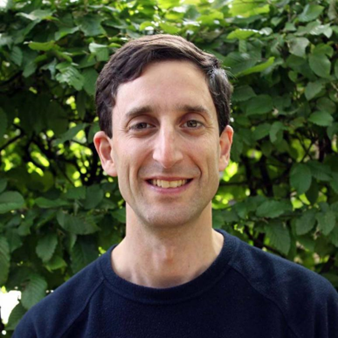Ilan Kelman: Could disaster diplomacy support science?
- 2847653225
- Sep 13, 2022
- 4 min read

Ilan Kelman
Professor of Disasters and Health at University College London, England and a Professor II at the University of Agder, Kristiansand, Norway
His research interest is linking risk, resilience and global health, including the integration of climate change into disaster research and health research. His recent publications include “Catastrophe and Conflict: Disaster Diplomacy and Its Foreign Policy Implications” .
The spread of the COVID-19 seriously threatens the health of the world’s people, and has a huge impact on the economic, social and national security. It also causes the international community to attach importance to non-traditional security issues. With the increasing global challenges and the increasing instability of the international situation, under this background, the Center conducted an exclusive interview with Professor Ilan Kelman, hoping to understand his views on disaster diplomacy and international cooperation in the context of COVID-19.
Ilan Kelman: Could disaster diplomacy support science?
The COVID-19 pandemic and many other disasters demonstrate the level of conflict that can emerge from trying to prevent, respond to, and deal with the aftermath of catastrophe. The disputes have ranged from country leaders raging at each other over medical aid to the deliberate spreading and amplifying of misinformation and disinformation that kills, such as on the efficacy of face coverings and vaccines.
How could better collaboration be enacted to avoid such problems? What options and opportunities exist, particularly for science and politics to work more closely together for saving lives in disasters, including pandemics? One area with lessons to implement and pathways forward is disaster diplomacy.
Disaster diplomacy investigates how and why disaster-related activities do and do not affect conflict and cooperation. Disaster-related activities include actions before disasters such as reducing risks and preventing calamity, during disasters such as emergency response and humanitarian aid, and after disasters such as recovery and reconstruction. Disaster diplomacy analyses so far cannot present many examples where disaster-related activities were the cause of new, lasting diplomacy. Positive outcomes typically demonstrate that pre-existing cooperation must exist for disaster-related activities to have any impact and this impact is usually short-term.
The 2004 Indian Ocean tsunami catalysed ongoing peace talks in Aceh-Indonesia to reach a lasting deal because the impetus for an agreement already existed, notably through negotiations that had begun before the disaster. Meanwhile, the warring parties in Sri Lanka lacked interest in reconciliation, so the disaster and subsequent aid were used as excuses to exacerbate the conflict.
Similarly, decades of hurricane disasters and efforts to avoid them never brought Cuba and the US closer together. Instead, leadership changes in each country preceded the waxing and waning of relations. Irrespective of officialdom’s antics, scientists from both countries were always collaborating to share information, publish research, and issue warnings.
Science diplomacy and informal diplomacy actually tend to witness better long-term implications from disaster diplomacy than formal endeavours. People know each other, enjoy working together, or exchange information socially including through social media, just happy to be helping others and being helped. This informal diplomacy can lead to rapid disaster-related action when needed—as well as generating and disseminating rumours and factual errors.
Hence emerges the importance of science and involving scientists in informal disaster diplomacy. Yet not all scientists enjoy communicating to the public or decision makers—and not all scientists are effective communicators. Many are talented and successful, while many more would wish to be. Promoting those who wish to have the opportunities and who know the science, without misrepresenting it or adopting ideological stances, could be a powerful way for improving the role of science in decision-making.
For it to happen, politicians must accept the role of evidence and, similarly with scientists, have the ultimate goal of averting disasters. The COVID-19 pandemic continues to demonstrate that this political goal can be absent. Several country leaders showed little interest in protecting health systems and controlling the virus’ spread while not magnifying adverse lockdown consequences such as livelihood losses, self-harm, substance use, domestic abuse, and restricting healthcare access. As with disaster diplomacy being unsuccessful when peace is not a goal, science diplomacy cannot work when evidence-based decision-making is not a goal.
How and why might the populace choose more leaders with an interest in science, noting that so few public figures are scientists? Numerous countries do not permit their citizens to select a leader in any way. Others witness powerful interests, such as media and money (categories which sometimes overlap), subverting democratic processes, conspicuously by undermining verifiable information including science and smearing would-be leaders who attempt honest campaigns.
In such instances, it would further weaken democracy to decry the will of the people. Instead, those with the power of information could choose to work within the freedoms and laws of their countries to circumvent disaster-creating leaders by offering opposite actions—namely, fairly bypassing destructive governments to achieve disaster-ending governance. This pathway offers a democratic and diplomatic approach for making available and making use of the best that science has to offer. It will never provide complete or certain answers. It will have people’s lives and livelihoods as the priority, not power or self-interest for its own sake.
Ultimately, disaster diplomacy through science gives the most to people who typically have the least. The hope is that the driving force is the desire to avoid, rather than respond to, disaster. The goal must be to join science and politics for acting over the long-term to reduce disaster risks before it is too late.
2022.03.31
Editor: Li Yuhan




Comments